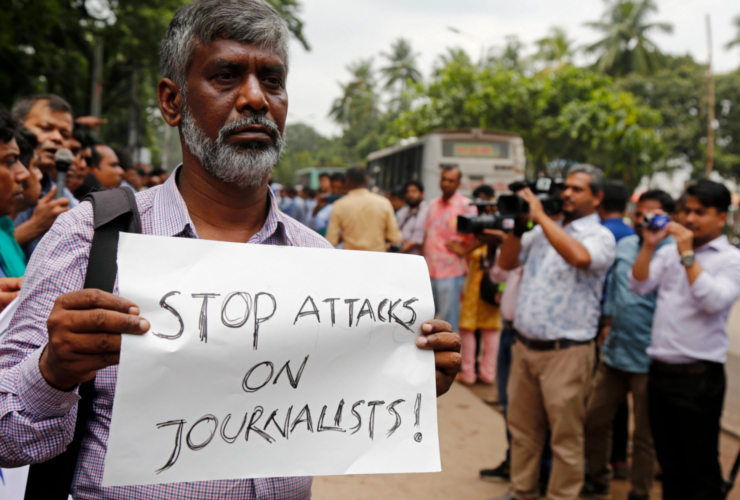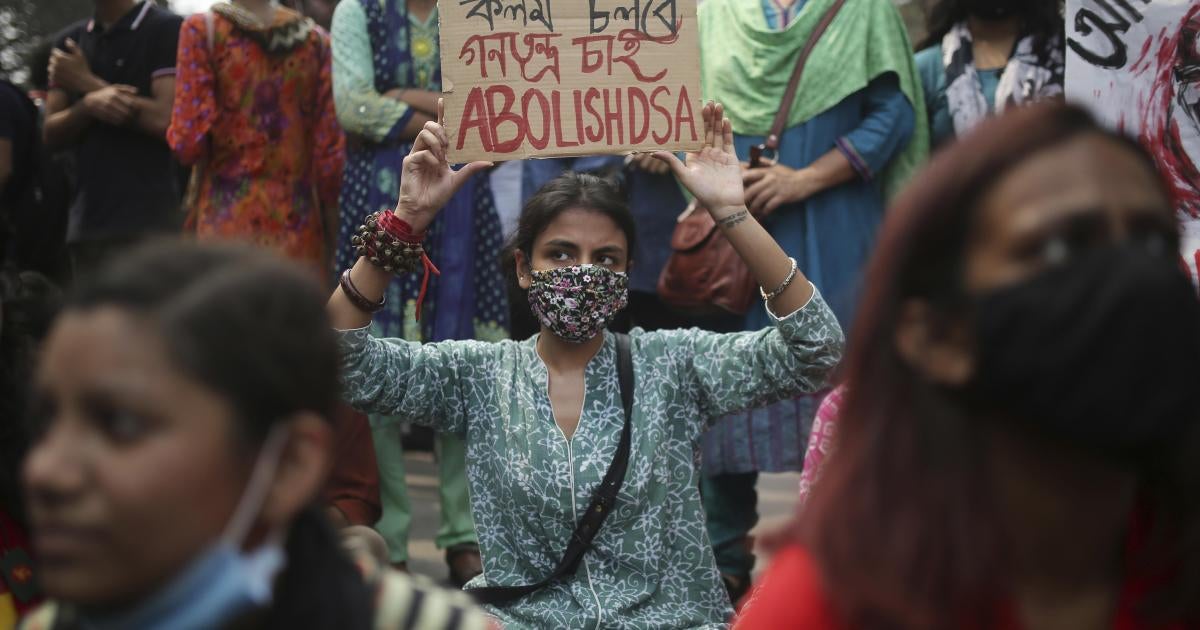Recent incidents of violence against journalists in Bangladesh have raised serious concerns about the deteriorating state of press freedom in the country. The brutal attack on Ayub Meahzi, a reporter in Chattogram, and the killing of Golam Rabbani Nadim, a local correspondent in Jamalpur, highlight the dangers faced by journalists who dare to report on sensitive issues. These incidents, along with the restrictive Digital Security Act (DSA), have created an environment of fear, leading to self-censorship and a decline in investigative journalism. Urgent action is required to protect journalists, uphold press freedom, and ensure accountability for these attacks.

image source: international press institute
The Threat to Journalists
Ayub Meahzi’s attack, where he was beaten and thrown from a building, was allegedly motivated by his reporting on alleged local government ties to a criminal group. This incident, along with the killing of Golam Rabbani Nadim, who had been investigating allegations against a local chairman, showcases the dangers faced by journalists who expose corruption and wrongdoing. The introduction of the DSA in 2018 has exacerbated the situation, leading to arrests, intimidation, and violence against journalists.
The Impact of the Digital Security Act
The DSA, ostensibly aimed at curbing propaganda and extremist material online, has been widely criticized for its vague wording and misuse to suppress dissent and stifle press freedom. Journalists and media workers have become cautious about the stories they write, fearing arrest and legal repercussions. The law’s broad scope has resulted in self-censorship, with critical stories on the ruling party or its projects being avoided. Journalists face threats, arrests in the middle of the night, and disappearances, creating a climate of fear and panic.

Protest in Bangladesh turns violent; hundreds of students and dozens of journalists attacked
Image source – Human rights watch
The Urgent Need for Action
The alarming rise in attacks on journalists and the shrinking space for free media in Bangladesh demand immediate action. A comprehensive investigation into the attacks on Ayub Meahzi and Golam Rabbani Nadim should be conducted, ensuring that the perpetrators are brought to justice. The DSA must be reviewed and amended to protect freedom of expression, eliminating its potential for misuse against journalists and media organizations. The government should actively promote a culture of transparency, accountability, and respect for press freedom.
International Community’s Role
The international community has a vital role to play in supporting press freedom in Bangladesh. Human rights organizations, press freedom groups, and international bodies should unequivocally condemn attacks on journalists and press for the repeal or amendment of laws that curtail freedom of expression. Diplomatic pressure, advocacy campaigns, and increased engagement with Bangladeshi authorities can help bring about the necessary changes. The media community worldwide must stand in solidarity with their Bangladeshi counterparts, amplifying their voices and advocating for their protection.
The attacks on journalists Ayub Meahzi and Golam Rabbani Nadim and the chilling effect of the Digital Security Act have raised urgent concerns about press freedom in Bangladesh. Journalists should not fear for their lives or face intimidation and violence while performing their essential role in society. Protecting press freedom and ensuring accountability for attacks on journalists is crucial for upholding democracy, promoting transparency, and safeguarding the rights of citizens. The government of Bangladesh must take immediate action to protect journalists, amend repressive laws, and demonstrate its commitment to a free and independent press. The international community must also lend its support in advocating for press freedom and holding the government accountable for the safety and well-being of journalists in Bangladesh.












